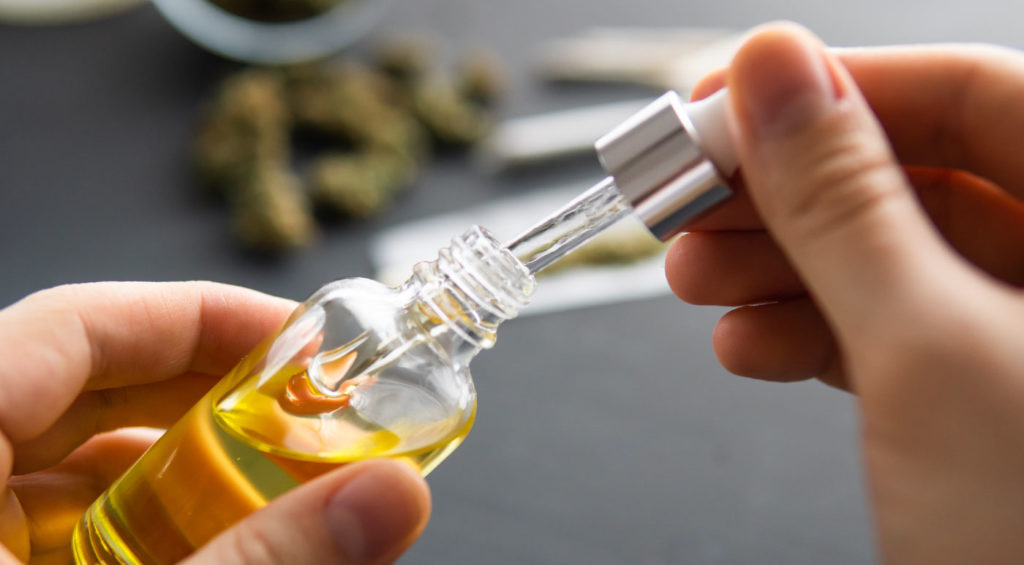
Irritable bowel syndrome, commonly known as IBS, can greatly affect the quality of life of those who suffer from the condition. It is a condition that is poorly understood by medical professionals, but it is well known that inflammation, stress, and anxiety are all associated with IBS symptoms. This gives rise to the idea that therapies that target these factors may help relieve IBS symptoms.
CBD has been shown to help with anxiety, pain, and reduce inflammation in clinical studies. Therefore, researchers are turning their attention to high-quality CBD and how to possibly use CBD oil for IBS.
Table of Contents
- CBD for IBS: Just the Facts
- Understanding IBS
- The Conventional Approaches to Treating IBS
- CBD for IBS: How it Works
- A Summary of What the Research Says
- Final Thoughts on Using CBD for IBS
CBD for IBS: Just the Facts
People with IBS experience disruptive digestive system symptoms, which often worsen with anxiety or during periods of stress. IBS is believed to be associated with an endocannabinoid deficiency, changes in serotonin levels, and a person’s mental-emotional state. Researchers are studying CBD for IBS due to its stimulation of the endocannabinoid system and serotonin receptors. Although research is just beginning and there have not been human clinical studies yet, the outlook for using CBD for IBS is promising.
Understanding IBS

Irritable bowel syndrome is a condition of the large intestine. It is commonly referred to as a “functional” gastrointestinal disorder. This is because, unlike other gastrointestinal conditions such as Crohn’s disease and ulcerative colitis, there are not any abnormalities of the digestive tract itself. However, IBS does cause changes in how the gastrointestinal system works. As a result, IBS patients suffer from numerous symptoms, including:
- Cramping
- Bloating
- Gas
- Changes in intestinal motility (constipation and/or diarrhea)
- Weight loss
- Abdominal pain
IBS is typically categorized as being constipation dominant, diarrhea dominant, or mixed.
What Causes IBS?
Unfortunately, we still do not know all the reasons a person may develop IBS. However, medical professionals believe that changes in intestinal motility, the nerves that control the bowels, and the bacteria in the digestive tract are likely involved.
It is thought that certain food triggers or changes in hormones may be part of the IBS picture. In addition, people are more likely to suffer from IBS if they also have a mental health condition such as anxiety or depression. Furthermore, times of high stress tend to make IBS symptoms worse.
The Conventional Approaches to Treating IBS
One of the main conventional approaches to treating IBS symptoms is reducing stress and anxiety levels. Therapies for stress reduction include meditation, counseling, and exercise.
Other treatments include diet modifications. For example, avoiding food triggers, eating high fiber foods, or following the FODMAP diet, which excludes foods that tend to cause gas and digestive upset.
In some cases, patients with IBS are given medications that influence intestinal motility, antidepressant medications such as SSRIs, or medicines such as antibiotics and probiotics that modify the gut flora.
The medical community is continually looking for better treatments for IBS that address the underlying factors of the condition. Recent attention has been on the possible uses of CBD for IBS.
Research on the Underlying Issues in IBS
Research shows that IBS patients have more inflammatory cells in their gastrointestinal tract (GI tract). As a result, they experience intestinal inflammation, and their GI tract becomes irritated. This leads to bloating, distention, and abdominal pain.
It has also been found that IBS patients have lower levels of serotonin in the GI tract. This is important because serotonin controls the motility speed of the digestive tract. Therefore, a serotonin deficiency can contribute to slow transit time (constipation) or fast transit time (diarrhea). Low levels of serotonin in the gut can also cause increased sensitivity to abdominal pain as well as higher levels of fear and anxiety.
It has been well established that anxiety and depression are correlated with the development of IBS. In addition, IBS symptoms worsen during times of increased mental stress.
CBD for IBS: How it Works

Many people with IBS and other gastrointestinal disorders such as inflammatory bowel disease (IBD) have reported that using medical marijuana and CBD products have drastically improved their symptoms. Stories like these have helped to encourage deeper research into the topic of using CBD for IBS.
To date, there have not been any clinical studies on the use of CBD for IBS directly. However, researchers have been looking at how CBD may help with the underlying factors of IBS.
What is CBD?
CBD oil comes from the industrial hemp plant, which is one type of cannabis plant. Its active ingredients are cannabinoids, such as cannabidiol.
People sometimes confuse CBD and marijuana. Although they both come from the cannabis plant, marijuana comes from a different type of cannabis plant than CBD does.
Unlike marijuana, CBD products do not contain the psychoactive component 9-tetrahydrocannabinol (THC). The hemp plant naturally has very little THC content. Furthermore, CBD products are further purified to remove any traces of THC.
In short, CBD products do not have psychoactive effects and will not cause you to get “high.” And, depending on what types of symptoms it’s used to address, CBD comes in different forms, ranging from topical creams to edibles and oil for vaping.
The Endocannabinoid System and IBS
The endocannabinoid system is found throughout our brains and bodies, and it is involved in aspects such as balancing our emotions, pain, and inflammation levels. Emerging research has found that IBS patients have an endocannabinoid deficiency, which results in increased inflammation, pain, and mental health symptoms.
CBD oil contains cannabinoids, including anandamide—which binds to cannabinoid receptors (CB1 receptors and CB2 receptors) within the endocannabinoid system. This results in lower levels of inflammation, reduced anxiety, and pain relief.
Cannabinoids and Anxiety
Anandamide, which is another cannabinoid found in CBD, is known as the “bliss molecule.” Researchers have found a relationship between this molecule and anxiety levels. Studies have found that anandamide’s activation of CB1 receptors has resulted in lower levels of fear, anxiety, and compulsion. This means that if CBD can help manage anxiety symptoms, it may be useful to IBS sufferers as anxiety and stress levels are known to worsen IBS symptoms.
Serotonin Receptors and CBD
As previously mentioned, IBS sufferers tend to have lower levels of serotonin, which is responsible for some of their digestive tract and mental-emotional symptoms.
Animal studies have found that cannabinoids such as cannabidiol (CBD) stimulate serotonin receptors (5-HT1a) in the brain. This means that CBD may balance serotonin levels, which interestingly, is the same target as antidepressant medications that are commonly prescribed for IBS patients.
A Summary of What the Research Says

To date, there are no clinical trials on the use of CBD for IBS.
Researchers have found that IBS is associated with an endocannabinoid deficiency, which influences pain, inflammation, and anxiety levels.
CBD binds to cannabinoid receptors in the endocannabinoid system, resulting in an anti-inflammatory, pain-relieving, anxiety-reducing effect.
Animal studies on CBD found that it stimulates the serotonin receptors that are typically affected in IBS.
Treatments that affect the endocannabinoid system, such as CBD oil, are in the early stages of development for addressing gastrointestinal diseases such as IBS.
Is CBD Oil Legal in the United States?
In the United States, CBD products (which contain very little to no THC) are legal to purchase and use. However, other medical cannabis products that have THC, including marijuana, are federally illegal. Some states have legalized marijuana for medical as well as recreational use.
Side Effects of CBD Oil
Reputable medical sources, including the Mayo Clinic, report that CBD products are very safe for most people to use. CBD does not typically cause side effects; however, some people do experience mild to moderate side effects such as dry mouth, diarrhea, fatigue, and changes in appetite.
Final Thoughts on Using CBD for IBS

We are in need of better treatments for IBS sufferers. People with IBS have used both medical marijuana and CBD products and reported significant improvement in their symptoms. Research shows that IBS patients likely have an endocannabinoid deficiency. And the cannabinoids found in CBD oil positively affect this system. CBD products are in early stages of research for addressing IBS, and at this time, the outlook appears optimistic.
If you are considering using CBD to address your IBS symptoms, discuss it with your doctor first. Never discontinue or change your medications without the supervision of your physician.
